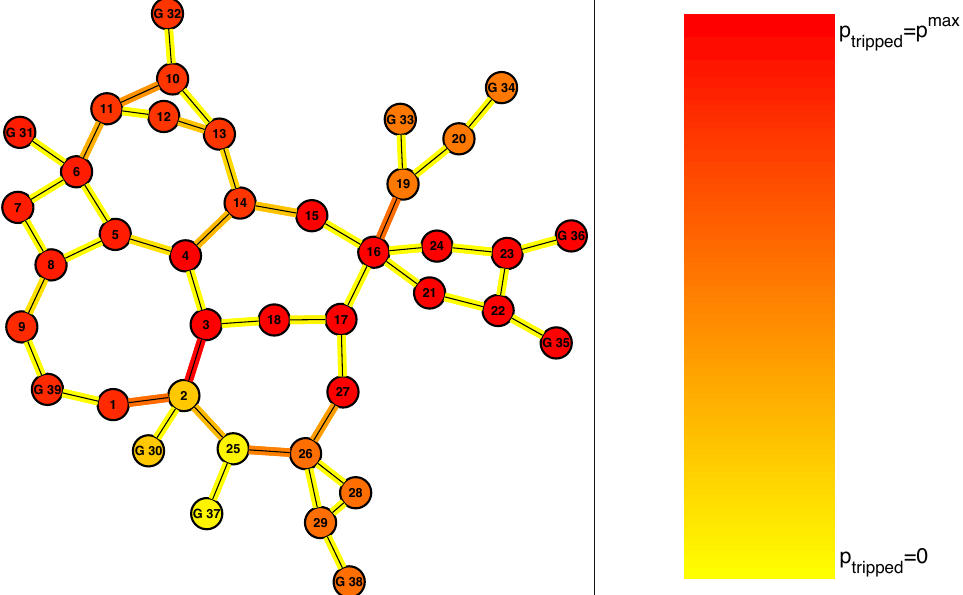Statistical classification of cascading failures in power grids
Rene Pfitzner, Konstantin Turitsyn and Michael Chertkov
2011 IEEE Power and Energy Society General Meeting (2011)
Abstract
We introduce a new microscopic model of the outages in transmission power grids. This model accounts for the automatic response of the grid to load fluctuations that take place on the scale of minutes, when the optimum power flow adjustments and load shedding controls are unavailable. We describe extreme events, initiated by load fluctuations, which cause cascading failures of loads, generators and lines. Our model is quasi-static in the causal, discrete time and sequential resolution of individual failures. The model, in its simplest realization based on the Directed Current description of the power flow problem, is tested on three standard IEEE systems consisting of 30, 39 and 118 buses. Our statistical analysis suggests a straightforward classification of cascading and islanding phases in terms of the ratios between average number of removed loads, generators and links. The analysis also demonstrates sensitivity to variations in line capacities. Future research challenges in modeling and control of cascading outages over real-world power networks are discussed.

